Building a startup is thrilling, but with it comes problems. Studies show that while around 80–90% of startups survive their first year, nearly 50–70% fail within the first five years due to challenges in scaling, customer management, and financial sustainability.

This is where a Customer Relationship Management (CRM) system is a game-changer. The ideal CRM for startups simplifies new businesses to manage leads, track sales, improve customer service, and save time with automation. Whether you are a small tech startup, an e-commerce company, or a service-based business, the ideal CRM can change the way you scale.
- What is a CRM for Startups?
- Why Startups Need a CRM on Day One
- Most Important Features of the Perfect CRM for Startups
- Advantages of Using CRM in Startups
- Types of CRM
- Best CRM Tools for Startups in 2025
- How to Choose the Best CRM for Your Startup
- When Should a Startup Start Using CRM?
- Future of CRM for Startups
- Final Thoughts
- FAQs
What is a CRM for Startups?
A CRM (Customer Relationship Management) system is software that helps firms manage relationships with customers, leads, and investors. For a startup, it’s not just about saving contacts, it’s about creating a process that allows teams to:
- Track leads from the point of first contact to conversion.
- Automate emails, reminders, and follow-ups.
- Analyze customer buy behavior and buying habits.
- Provide smooth customer support.
- Share data with teams in real time.
Unlike business CRMs that are typically complex and expensive, startup CRMs are designed to be:
- Easy to set up
- Affordable or even free to start
- Scalable as the business grows
- Equipped with automation for time savings
Having it as the growth engine of your startup, keeping you organized and going faster without burning out your team.
Recommended Read: Best CRM for Small Businesses (2025)
Why Startups Need a CRM on Day One
Most entrepreneurs wait, assuming that CRM is only meant for big businesses. But practically speaking, the earlier you do it, the smoother your growth journey is.
The following are the best arguments why startups must implement CRM as soon as possible:
1. Organize Leads Effectively
Instead of spreadsheets or random scribbled notes, CRM puts all leads in one place. You understand where every prospect is in the sales pipeline and never lose a prospect.
2. Save Time with Automation
Startups lack resources. CRM eliminates mundane tasks like sending follow-up emails, meeting scheduling, or call logging, giving your team time to focus on high-impact activities.
3. Create Stronger Relationships
CRM provides you with a 360° view of every customer. You’ll see their history, their likes and dislikes, and how they interact, allowing you to personalize experiences and build loyalty.
4. Attract Investors
Startups are cash-hungry. A CRM enables investor interactions to be tracked, pitch communications to be organized, and clean data to be displayed, which creates trust and credibility.
5. Data-Driven Decision Making
With CRM analytics, you can forecast sales, monitor performance, and switch gears quickly, key to thriving in competitive markets.
Most Important Features of the Perfect CRM for Startups
When choosing the perfect CRM for startups, look for these critical features:
- Simple Setup & User-Friendly Interface: No IT experts needed; startups need plug-and-play CRMs.
- Lead & Contact Management: Single database to record all prospects and customers.
- Sales Pipeline Monitoring: Visual boards for tracking deals and conversions.
- Marketing Automation: Automated workflows, emails, and campaigns.
- Customer Support Features: Ticketing systems, chatbots, and helpdesk features.
- AI-Powered Insights: Predictive analytics for ranking leads and forecasting revenue.
- Integrations: Integration support for Slack, Gmail, Zoom, project management tools, and accounting software.
- Scalability: Scaling with your startup without needing a full migration later.
Advantages of Using CRM in Startups
The ideal CRM provides both short-term productivity and long-term expansion. Here’s how:
1. Faster Sales Conversions
Automated follow-ups and prioritized leads allow startups to close deals quicker.
2. Reduced Costs
Rather than using several tools, a CRM unifies marketing, sales, and service in one platform, cost savings.
3. Personalized Engagement
CRM allows startups to deliver personalized messages, offers, and suggestions, enhancing customer satisfaction.
4. Stronger Retention
Happy customers = repeat purchases. With CRM, startups can capture customer history and provide personalized care.
5. Team Collaboration
All (marketing, sales, service) work on one platform, fewer silos, improved communications.
Types of CRM
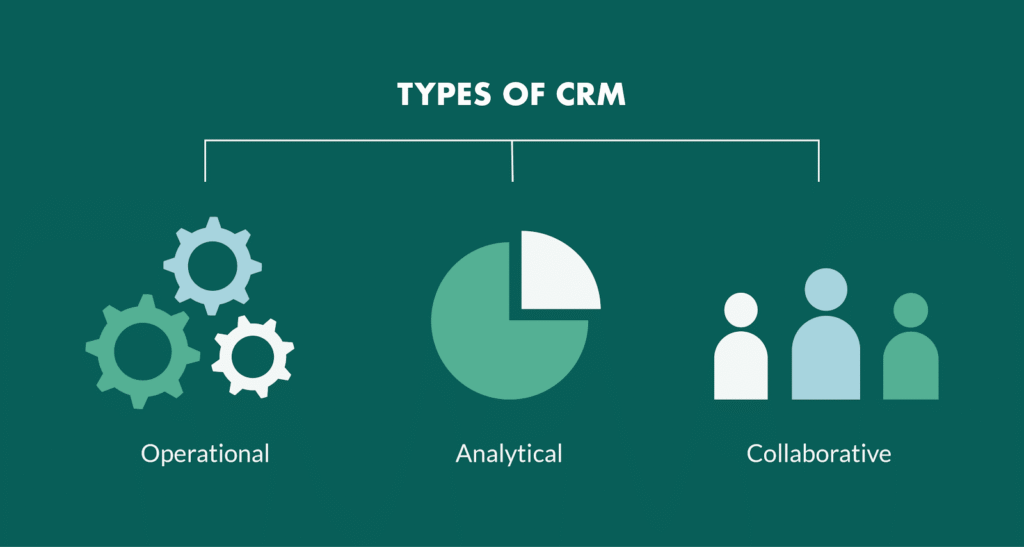
Not all CRMs are alike. Startups get to choose based on their most important needs:
- Operational CRM: Focused on day-to-day tasks like sales, marketing, and service automation.
- Analytical CRM: Enables customer data analysis for better decisions.
- Collaborative CRM: Designed specifically to improve interaction between internal teams and customers.
Best CRM Tools for Startups in 2025
Here is a compilation of the best CRM software for startups with pros and cons, along with best uses:
1. HubSpot CRM
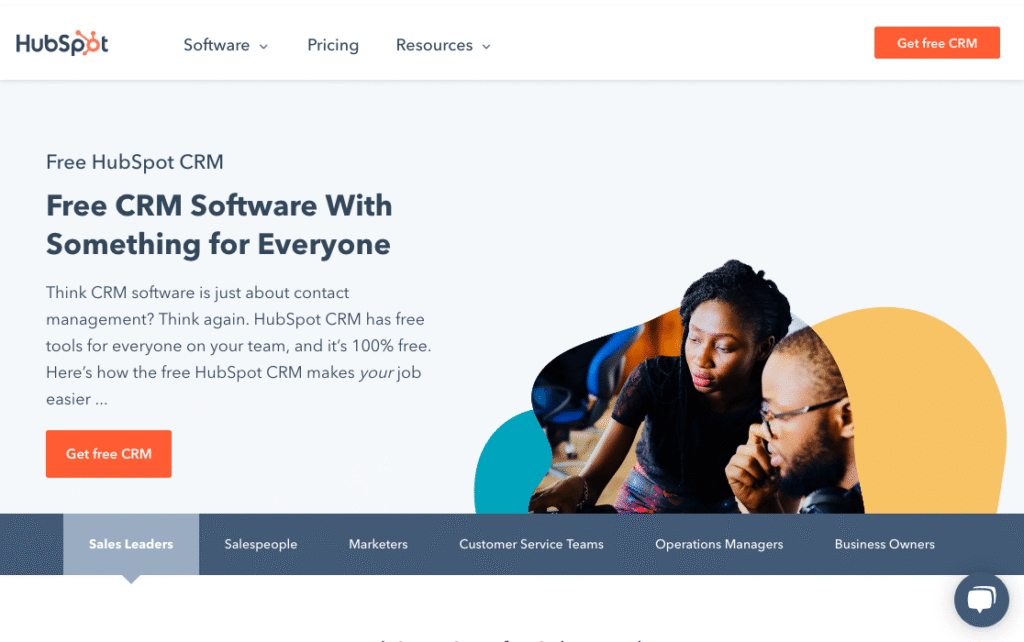
- Free forever plan
- Easy to use, ideal for beginners
- Marketing, sales, and support all in one
- Advanced features are paid
- Best for: Funded startups looking for an all-in-one free solution with upgrade options.
2. Salesforce

- Top-of-industry CRM with improved features.
- AI-powered tools and automation.
- Grows as your business does.
- High learning curve and cost for early-stage startups.
- Best for: Funded startups that anticipate rapid scaling and enterprise-scale activities.
3. Zoho CRM
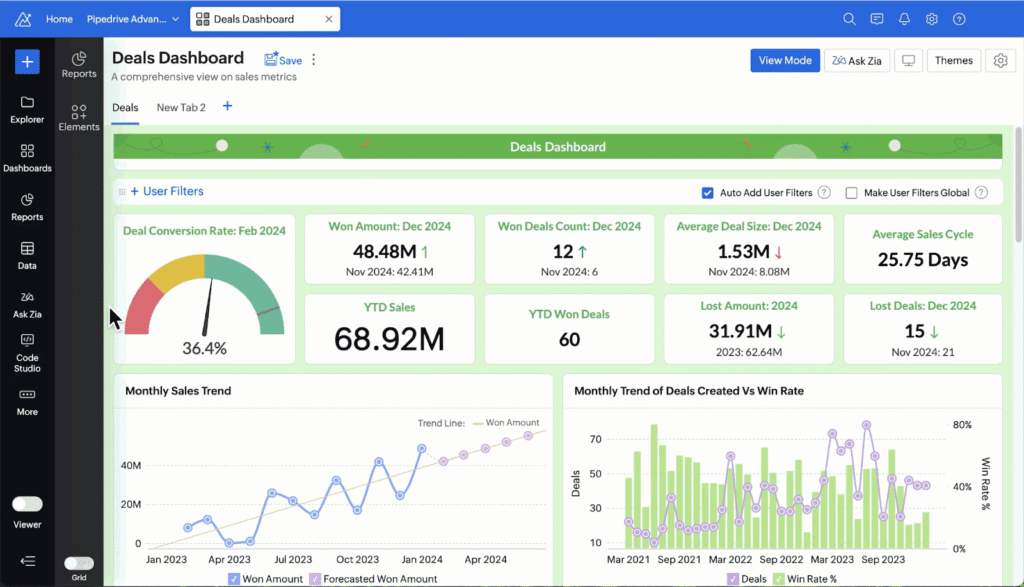
- Affordable and customizable
- AI-powered assistant (Zia)
- Great integrations
- Interface may become cluttered for new users
- Best for: Cost-conscious startups looking for flexible features.
4. Pipedrive

- Visual-pipeline-based sales-focused CRM
- Easy outreach automation
- Low costs
- Few marketing features
- Best for: Startups that care most about sales growth.
5. Freshsales (by Freshworks)
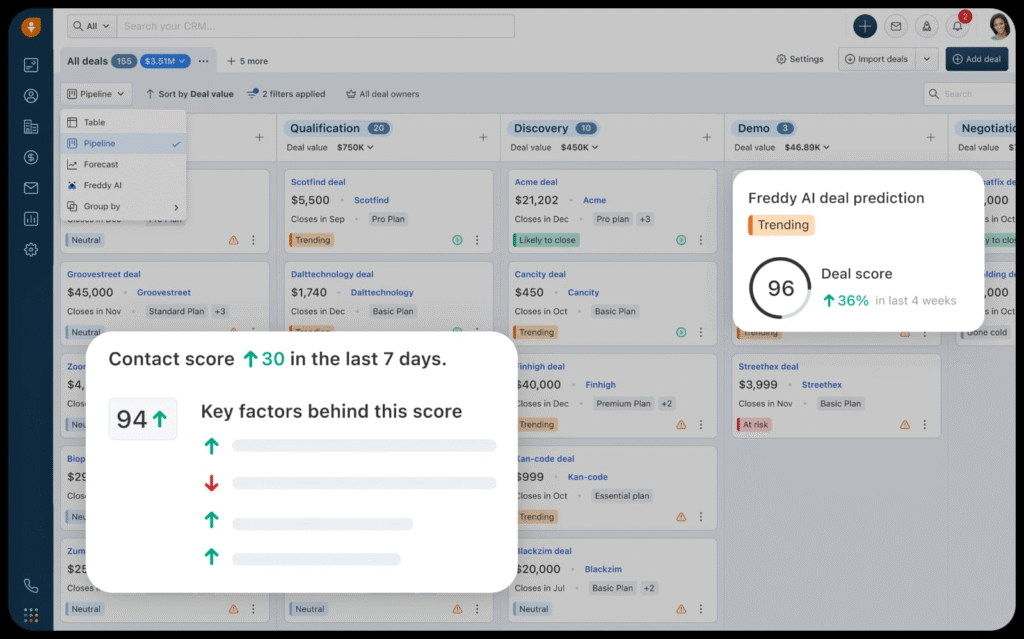
- AI-powered CRM with intuitive interface
- Phone, email, and chat support integrated
- Affordable pricing
- Fewer third-party integrations than Salesforce
- Best for: Startups looking for a balance of affordability and enterprise feature-set.
6. Monday CRM
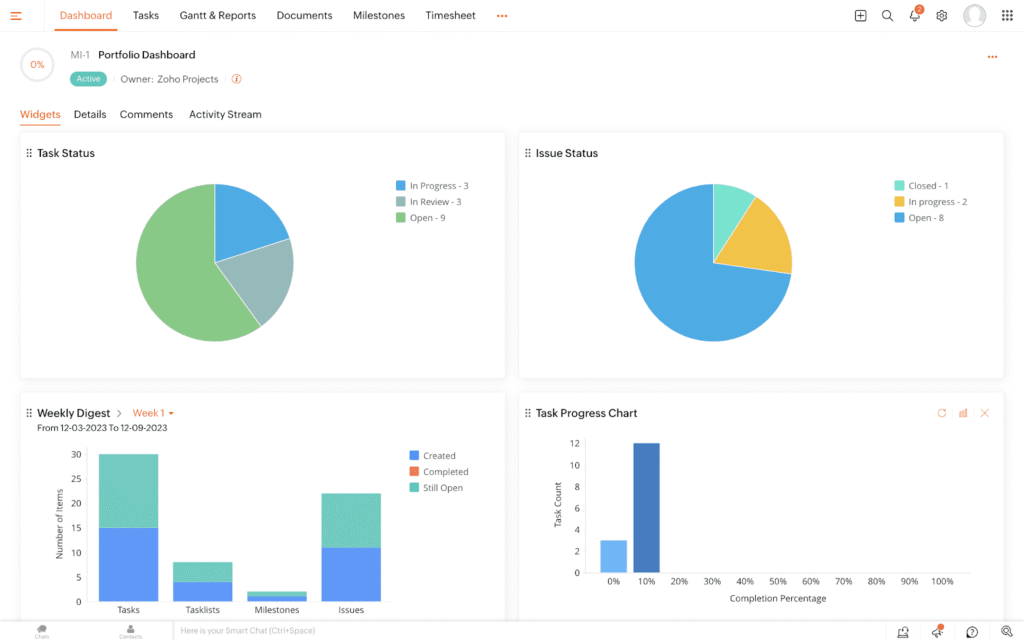
- Very customizable workflows
- Great project + sales management integration
- Easy-to-use visual dashboards
- Some features need add-ons
- Best for: Tech startups that want project management + CRM in a single solution.
How to Choose the Best CRM for Your Startup
Here’s a quick decision-making framework:
- Define Your Objectives: Sales increase? Retention of customers? Management of investors?
- List Key Features: Prioritize automation, reporting, or integrations.
- Set a Budget: Weigh free against paid CRMs.
- Test Multiple Options: Utilize free trials to determine what works for your team.
- Check Scaling: Ensure the CRM scales with your business.
- Get Team Feedback: Get input from sales, marketing, and support teams before making a purchase.
When Should a Startup Start Using CRM?
The short answer: As soon as possible.
- If you’re doing leads manually → You need a CRM.
- If your follow-up is being suffered by your team → You need a CRM.
- If customer communication is scattered → You need a CRM.
The earlier you adopt CRM, the easier it will be to scale with clean data and strong processes.
Quick Link: Inbound Marketing Funnel (Complete Guide)
Future of CRM for Startups
- The future is AI + automation. In 2025 and beyond
- CRMs will use AI for customer behavior forecasting and suggesting actions.
- Generative AI will be used to help build personalized content and emails.
- Startups will use real-time analytics to make decisions faster.
- Customer experiences will be highly personalized with data-driven insights.
- Startups that embrace these trends early will be competitive.
Final Thoughts
The best CRM for startups isn’t software, it’s your growth partner. For lead management, customer retention, and impressing investors, CRM is the key to long-term success.
Whichever you choose among HubSpot, Salesforce, Zoho, Pipedrive, or Freshsales, the trick is to start early, be consistent, and use the data to get smarter.
Don’t wait until your startup is sinking. Install CRM today and give your business the structure it takes to stay alive and thrive.
Check out our Digital Marketing Page; for more expert tips and guides.
If you’d like to work in AI and SEO, submit your guest post and Write for Us.
FAQs
What is the best free CRM for startups?
The best free CRM is HubSpot CRM, and it offers sales, marketing, and customer support tools for free. It’s scalable, so startups can expand and upgrade.
How much does a CRM cost for startups?
CRM costs vary. There are free alternatives such as HubSpot, but paid CRMs (Zoho, Pipedrive, Freshsales) are in the range of $15–$50 per user/month. Enterprise-class solutions such as Salesforce may be more costly but include the complete enterprise range of features.
When should startups deploy a CRM?
The best time is as early as possible. Involving CRM from the first day ensures organized data, efficient workflows, and faster scalability. Delaying it would result in data silos and inefficiency.